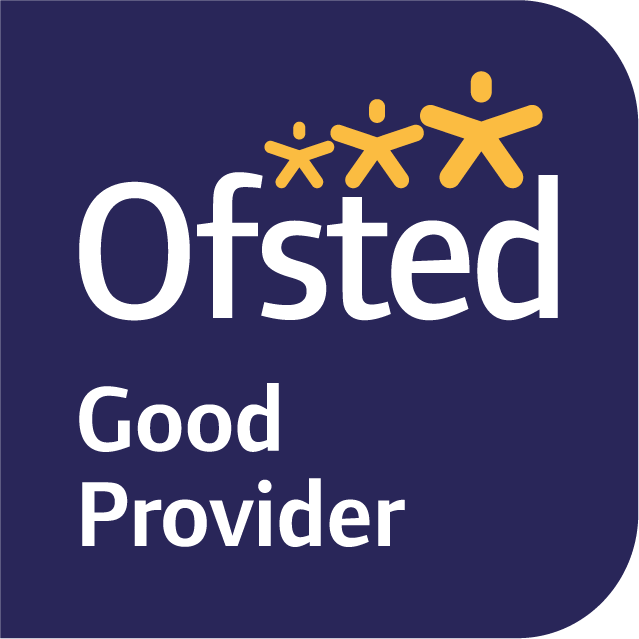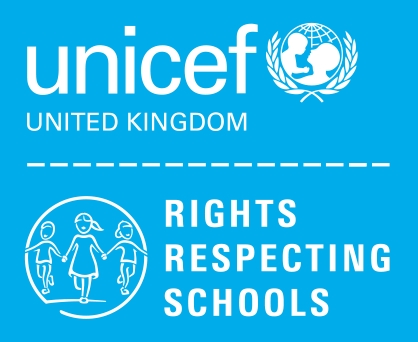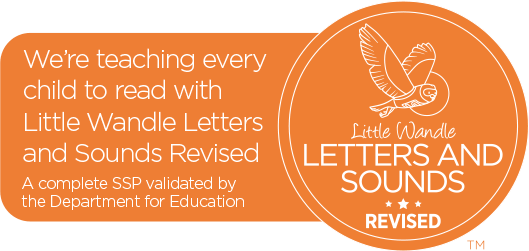Early Reading & Phonics
At Blacko Primary School, we put English at the centre of every child’s learning. We recognise the significance of language, communication, reading and writing in all aspects of life, from developing independent learning skills to successfully entering the world of work. We place high-quality texts at the heart of our curriculum and encourage children to develop their love of reading through our Reading for Pleasure initiatives. Experiential learning opportunities and a vocabulary-rich learning environment feed directly into children’s writing outcomes.
The overarching aims of our English curriculum are to:
-
Develop strong oracy skills that allow children to express themselves, communicating confidently across a range of contexts.
-
Enable children to read fluently, widely and often, understanding a wide range of texts appropriate for their age.
-
Enable children to draft, edit and present writing that is both technically proficient and creative, tailored to the demands of purpose and audience.
-
Enable children to have a solid understanding of grammar and be able to spell new words by effectively applying the spelling patterns and rules they learn throughout their time in primary school.
- Encourage confidence and enjoyment in speaking, listening, reading and writing.
Underpinning our English curriculum are some core principles:
-
Consciously builds on children’s existing language and literacy experiences.
-
Recognises the importance of all those involved in the learning experience – parents and carers, wider family members, teachers and children.
-
Values diversity and is culturally inclusive.
-
Has high expectations of all children.
-
Values and promotes critical enquiry.
- Offers challenge but provides models, demonstrations, examples and scaffolds to help children tackle them successfully.
All aspects of our English curriculum are interrelated, and progress in one area is supported by development in each of the others. At Blacko Primary, we acknowledge the strong reciprocal relationship between speaking, listening, reading and writing.
At Blacko Primary School, we believe that all pupils can achieve in Reading, both for pleasure and in their comprehension and understanding. We do not put ceilings on what pupils can achieve, and we do not hold pre-conceptions about any pupils’ ability to make progress. We believe through reading, pupils will have a chance to develop culturally, emotionally, intellectually, socially and spiritually. We feel that reading enables pupils both to acquire knowledge and to build on what they already know.
Phonics:
Our Phonics Curriculum comes from the Department for Education Letters and Sounds in conjunction with Little Wandle.
In Early Years and Key Stage 1, early word reading is taught through a systematic synthetic phonics programme (Little Wandle) which has been carefully designed to best meet the needs of the children at Blacko. Children in Reception will be taught through pacey and engaging, direct, daily teaching sessions and will begin to learn a defined group of grapheme-phoneme correspondences.
Alongside this, children are taught how to read printed words by identifying and blending individual phonemes from left to right all through the word, as well as the skill of segmenting spoken words into their constituent phonemes for spelling. The children are also taught to decode and spell common exception words (‘tricky words’). As the children progress through Year 1 and 2, they move from simple to more complex phonic knowledge and skills.
Following three weekly Little Wandle assessments, children are given a reading practice book that is built upon the child’s current phonological awareness. The texts/books are composed of words made up of grapheme-phoneme correspondences matched to the child’s current assessments, along with several common exception words (known to children as tricky words).
As part of the programme, the children are taught how to form lower-case and capital letters correctly with clear start and finish points. To support this, we use mnemonic phrases along with an image to help the children build a mind picture of the letter formation. The children are then taught to write words made up of the learnt grapheme-phoneme correspondences and then simple sentences composed from these words, as well as any common exception words learnt.
Clear progression and assessment criteria enable teaching staff to monitor the children’s progress closely, and we use the Little Wandle structured interventions, alongside Precision Teaching tools, to ensure any child in danger of falling behind is able to keep up and catch up. Children with specific learning or speech and language difficulties are supported by the Special Educational Needs co-ordinator.
Alongside this, we develop children’s knowledge and understanding of ‘concepts about print’. Developing print awareness or concepts about print is understanding that print is organised in a particular way — for example, knowing that print is read from left to right and top to bottom. It is knowing that words consist of letters and that spaces appear between words.
Daily phonics lessons in Reception and Year 1:
We teach phonics for 30 minutes a day. In Reception, we build from 10-minute short burst sessions, alongside foundations for phonics and oral blending games and slowly build up to a full 30-minute lesson. Each Friday, we review the week’s teaching to help children become fluent and confident readers.
Children make a strong start in Reception: teaching begins in Week 2 of Autumn 1. We follow the Little Wandle Letters and Sounds Revised expectations of progress:
- Children in Reception are taught to read and spell words using Phase 2 and 3 GPCs, and words with adjacent consonants (Phase 4) with fluency and accuracy.
- Children in Year 1 review Phase 3 and 4 and are taught to read and spell words using Phase 5 GPCs with fluency and accuracy.
Daily keep-up lessons ensure every child learns to read:
Any child who needs additional practice has daily keep-up support, taught by a fully trained adult. Keep-up lessons match the structure of class teaching, and use the same procedures, resources and mantras, but in smaller steps with more repetition, so that every child secures their learning.
Timetabled daily phonics lessons for any child in Year 2 or 3 who are not fully fluent at reading or have not passed the Phonics Screening Check. These children urgently need to catch up, so the gap between themselves and their peers does not widen. We use the Little Wandle Letters and Sounds Revised assessments to identify the gaps in their phonic knowledge and teach these using the keep-up resources – at pace.
If any child in Year 3 to 6 has gaps in their phonic knowledge when reading or writing, we plan phonics ‘catch-up’ lessons to address specific reading/writing gaps. These short, sharp lessons last 10 minutes and take place at least three times a week.
Early Reading:
At Blacko, we value reading as a crucial life skill. By the time children leave us, they read confidently for meaning and regularly enjoy reading for pleasure. Our readers are equipped with the tools to tackle unfamiliar vocabulary. We encourage our children to see themselves as readers for both pleasure and purpose.
Because we believe teaching every child to read is so important, we have an Early Reading lead who drives the early reading programme in our school. This person is highly skilled at teaching phonics and reading, and they monitor and support our reading team, so everyone teaches with fidelity to the Little Wandle Letters and Sounds Revised programme.
Teaching early reading:
We teach children to read through reading practice sessions three times a week, each reading session:
-
Is taught by a fully trained adult to small groups of approximately six children.
-
Uses books matched to the children's secure phonic knowledge using the Little Wandle Letters and Sounds Revised assessments and book matching grids on pages 11-20 of 'Application of phonics to reading'.
- Is monitored by the class teacher, who rotates and works with each group on a regular basis.
Each reading practice session has a clear focus, so that the demands of the session do not overload the children’s working memory. The reading practice sessions have been designed to focus on three key reading skills:
- decoding.
- prosody: teaching children to read with understanding and expression.
- comprehension: teaching children to understand the text.
In Reception, these reading sessions start in Week 4. In week 4, children are given a wordless picture book. This allows children to understand the five key concepts about print:
- print has meaning.
- print can have different purposes.
- we read English text from left to right and from top to bottom.
- the names of the different parts of a book.
- page sequencing.
Following Reception’s first phonics assessment, gaps in grapheme-phoneme knowledge are identified. Children are then given a simple CVC wordbook which is matched closely to the children’s current phonological awareness. Children who are not yet decoding have daily additional blending practice in small groups, so that they quickly learn to blend and can begin to read books.
In Years 2 and 3, we continue to teach reading in this way for any children who still need to practise reading with decodable books.
Home reading:
Following on from the three-part school reading sessions, children take home their reading practice book to share at home with their families.
As a school, we expect children to read their reading practice book three times a week at home. This is to support confidence and fluency. Although we encourage reading three times a week, we would encourage reading for pleasure as much as possible. To support working families, Tower Club offers reading sessions for children attending during their after-school club provision.
Alongside a reading practice book, children will choose a reading for pleasure book from our school library. Each class has a weekly visit to the library where they can share stories with an adult or alongside their peers. Children then take their book home for the week to share at home.
We use the Little Wandle Letters and Sounds Revised parents’ resources to engage our families and share information about phonics, the benefits of sharing books, how children learn to blend and other aspects of our provision, both online and through workshops.
Additional reading support for vulnerable children:
Children in Reception and Year 1 who are receiving additional phonics keep-up sessions read their reading practice book to an adult daily.
Ensuring consistency and pace of progress:
Every teacher in our school has been trained to teach reading, so we have the same expectations of progress. We all use the same language, routines and resources to teach children to read so that we lower children’s cognitive load.
Weekly content grids map each element of new learning to each day, week and term for the duration of the programme.
Lesson templates, prompt cards and 'How to' videos ensure teachers all have a consistent approach and structure for each lesson.
The Phonics Leader, Reading Leader and SLT use the Audit and Prompt cards to regularly monitor and observe teaching; they use the summative data to identify children who need additional support and gaps in learning.
Ensuring reading for pleasure
‘Reading for pleasure is the single most important indicator of a child’s success.’ (OECD 2002)
‘The will influences the skill and vice versa.’ (OECD 2010)
We value reading for pleasure highly and work hard as a school to grow our Reading for Pleasure pedagogy.
We read to children every day. We choose these books carefully as we want children to experience a wide range of books, including books that reflect the children at Blacko Primary School and our local community as well as books that open windows into other worlds and cultures.
Every classroom has an inviting book corner that encourages a love for reading. We curate these books and talk about them to entice children to read a wide range of books. In Reception, children have access to the reading corner every day in their free flow time and the books are continually refreshed. As the children progress through school, they are encouraged to write their own comments and keep a list of the books/authors that they have read.
At Blacko Primary School, we value children taking on an active role in promoting ‘Reading for Pleasure.’ At the start of the year, our reading lead completes an assembly which invites children to apply for a role as a reading ambassador. Four children from Key Stage 2 are chosen to become reading ambassadors and embark on a mission to promote a love of reading across school. Reading ambassadors are responsible for keeping our library up to date with new texts, encouraging children to attend exciting book clubs at lunchtimes and supporting the reading lead to plan engaging World Book Days and reading-focused assemblies.
To further support reading for pleasure, the school library is also made available for classes to use at protected times. Classes use a booking system to take out books each week. Children across the school have regular opportunities to engage with a wide range of Reading for Pleasure events (author visits and workshops, national events etc).
Assessment:
Little Wandle ensures that trained staff deliver three weekly assessments to ensure that progress is monitored closely to identify any child needing additional support as soon as they need it.
Assessment for learning is used:
-
daily within class to identify children needing keep-up support.
-
weekly in the Review lesson to assess gaps, address these immediately and secure fluency of GPCs, words and spellings.
Summative assessment is used:
-
every six weeks to assess progress, to identify gaps in learning that need to be addressed, to identify any children needing additional support and to plan the keep-up support that they need.
-
by Phonics Leader and scrutinised through the Little Wandle Letters and Sounds Revised assessment tracker, to narrow attainment gaps between different groups of children and so that any additional support for teachers can be put into place.
Statutory assessment:
- Children in Year 1 sit the Phonics Screening Check. Any child not passing the check re-sits it in Year 2.
Ongoing assessment for catch-up:
-
Children in Years 2 to 6 are assessed through their teacher’s ongoing formative assessment as well as through the half-termly Little Wandle Letters and Sounds Revised summative assessments.
Inclusion & SEND Across Our Curriculum
Across all areas of the primary curriculum, we are committed to ensuring that every pupil—including those with SEND, those who are disadvantaged, and pupils from all backgrounds and demographics—can access, engage with and succeed in their learning.
Our curriculum is designed to be inclusive by intent and adaptive in practice, ensuring that high expectations are maintained for all learners while removing barriers to participation and progress.
High-Quality, Inclusive Teaching in Every Subject
In every subject, pupils with SEND are supported to access learning through carefully planned adaptations that are responsive to individual need. These adaptations are part of high-quality first teaching and are planned by class teachers in collaboration with the SENDCo where appropriate.
Adaptations are informed by the EEF’s ‘Five-a-Day’ principles for SEND, ensuring that teaching strategies are evidence-based and benefit all learners. These may include:
-
Flexible grouping and targeted adult support
-
Clear modelling and explicit instruction
-
Use of visuals, scaffolds and structured resources
-
Opportunities for retrieval, overlearning and pre-teaching
-
Assistive technology or alternative methods of recording
Such approaches support pupils with SEND while also strengthening learning for disadvantaged pupils and the wider class.
Subject-Specific Adaptation and Access
Each curriculum subject is planned with consideration for:
-
Cognitive demand and curriculum sequencing
-
Language and vocabulary development
-
Practical and multisensory learning opportunities
-
Alternative ways for pupils to demonstrate understanding
Where needed, teachers implement Ordinarily Available Provision (OAP) within lessons to ensure pupils can participate meaningfully in subject learning alongside their peers.
This ensures that pupils are not removed from learning unnecessarily and that adaptations remain closely aligned to the curriculum’s intended knowledge and skills.
Early Identification and Responsive Support
Across all subjects, pupil progress is closely monitored. Where barriers to learning are identified, teachers follow a graduated response (Assess, Plan, Do, Review) to ensure timely and appropriate support.
Subject leaders work alongside the SENDCo to:
-
Review curriculum accessibility
-
Support teachers with inclusive subject-specific strategies
-
Ensure adaptations are effective and proportionate
-
Maintain ambitious outcomes for all learners
This reflects the current Ofsted focus on how well schools identify need, adapt curriculum delivery and evaluate impact for pupils with SEND.
Partnership with Families
We recognise the importance of working in partnership with parents and carers. Our Inclusion and SEND page provides further information about:
-
How subject learning may be adapted
-
What support looks like in the classroom
-
How progress is communicated
-
Where families can access additional advice or support
Through open communication, we ensure that provision across all curriculum areas reflects each child’s strengths, needs and aspirations.
Inclusive Curriculum & Ofsted Expectations
Our approach aligns with the latest Ofsted Inspection Framework, which places strong emphasis on:
-
Inclusive curriculum design
-
The effectiveness of adaptive teaching
-
The impact of support for pupils with SEND and those who are disadvantaged
-
Leaders’ understanding of how well pupils access and achieve across subjects
We continually review our curriculum and teaching practices to ensure that all pupils are supported to achieve well across every subject area.
For further information, please see our SEND and Inclusion Page on our school website.
Further information and Support at Home
Please see phonics curriculum together with guides. Other useful phonics videos can be found below:
Parent Support for Phonics: Little Wandle Phonics Support Resources and Videos
How we teach: Little Wandle Videos for Parents
Reading at Home and Reading Books: Support and Videos for Parents
Learning Nursery Rhymes: Videos for Parents and at Home
Learning Nursery Rhymes: Resources and Downliads for Parents
Please see our downloads below for further support at home:




